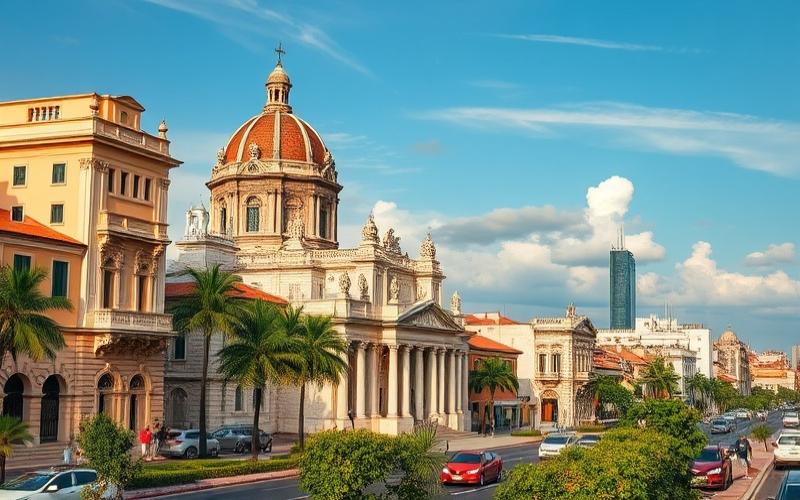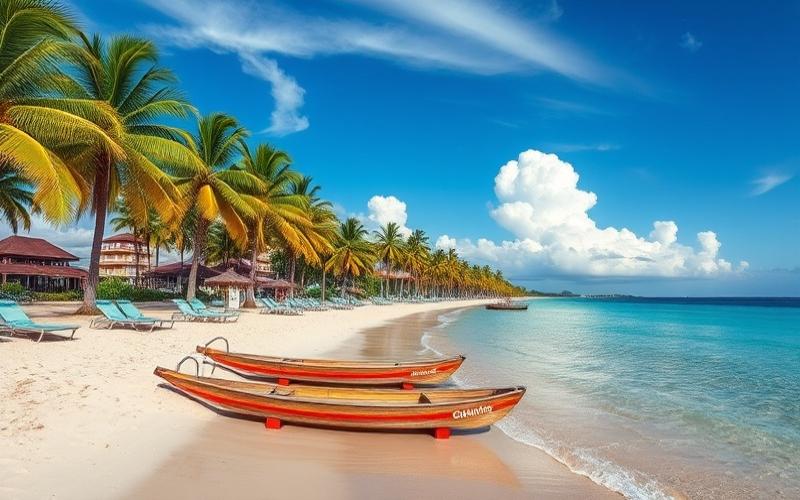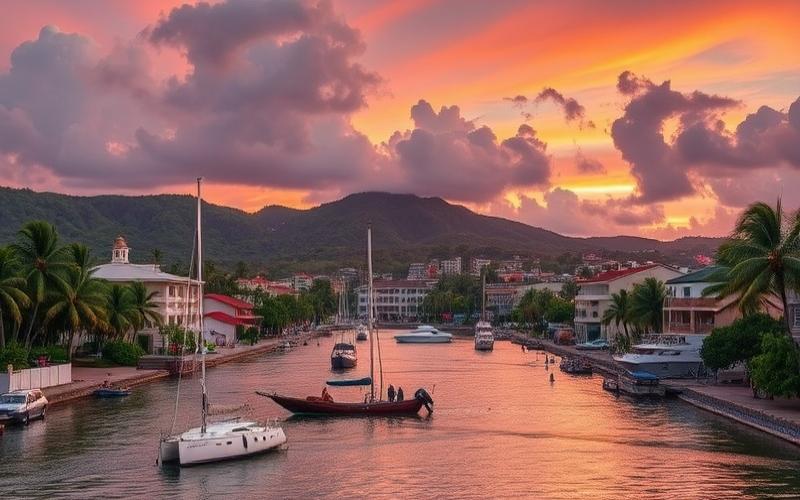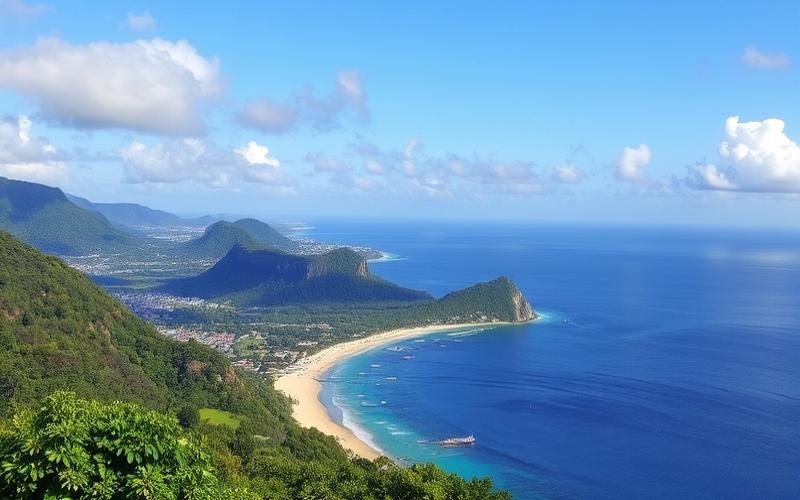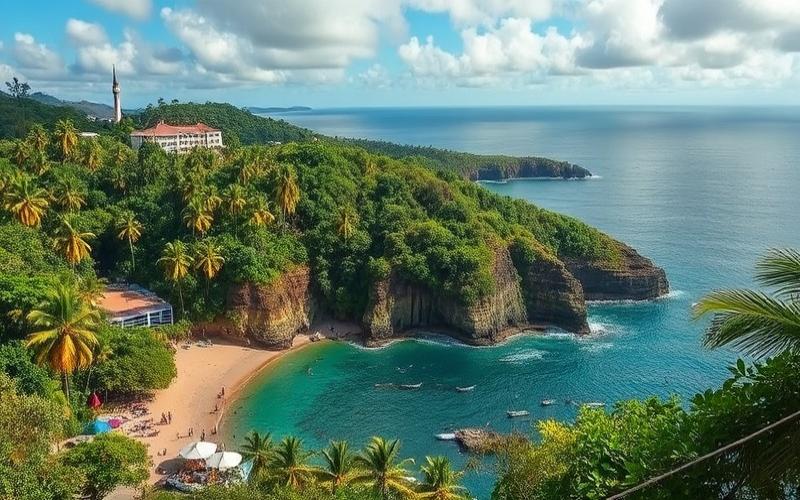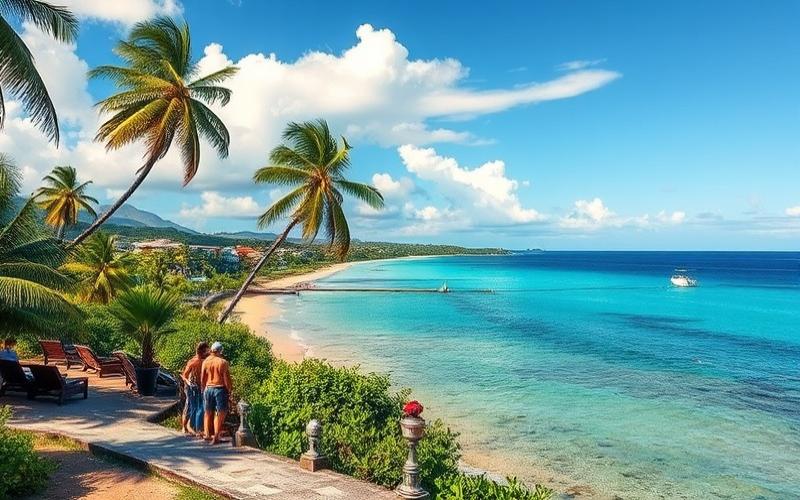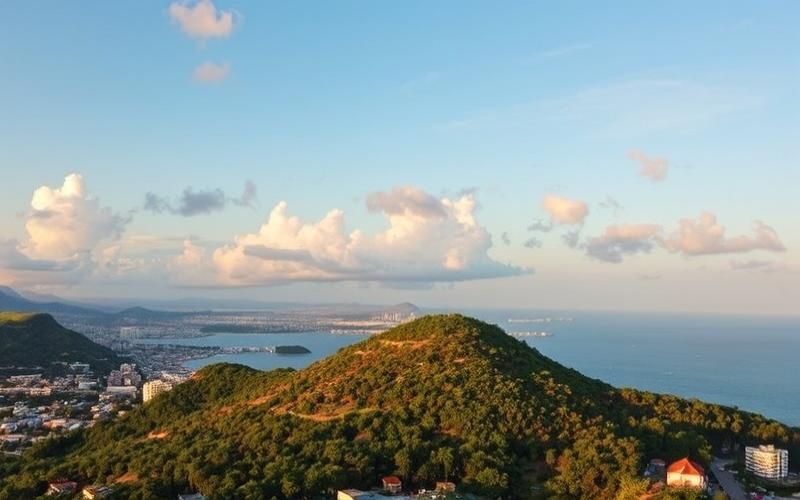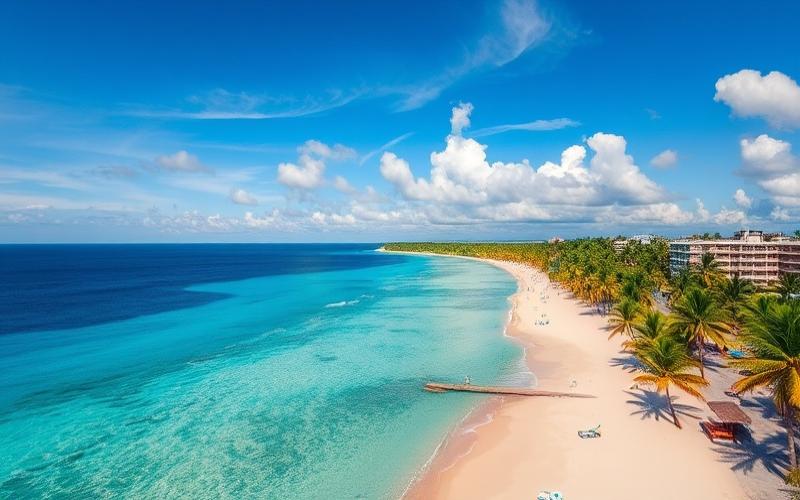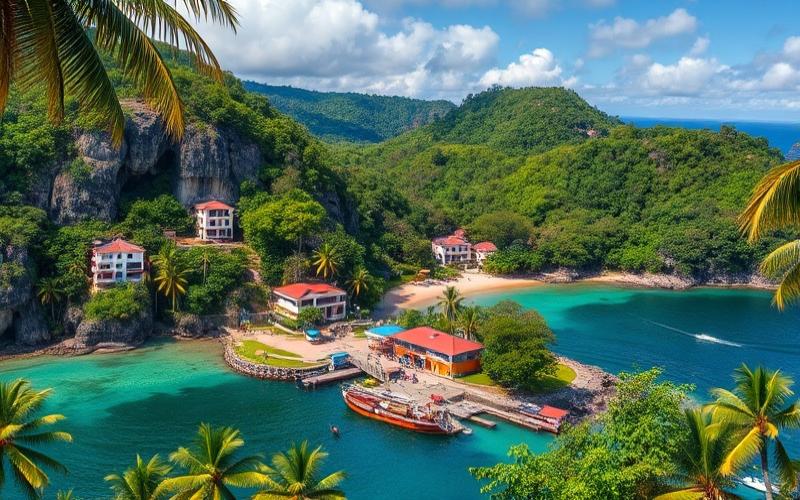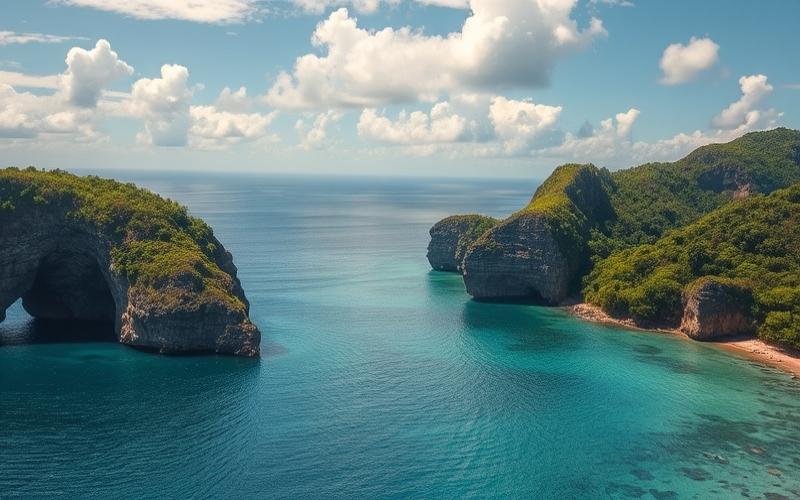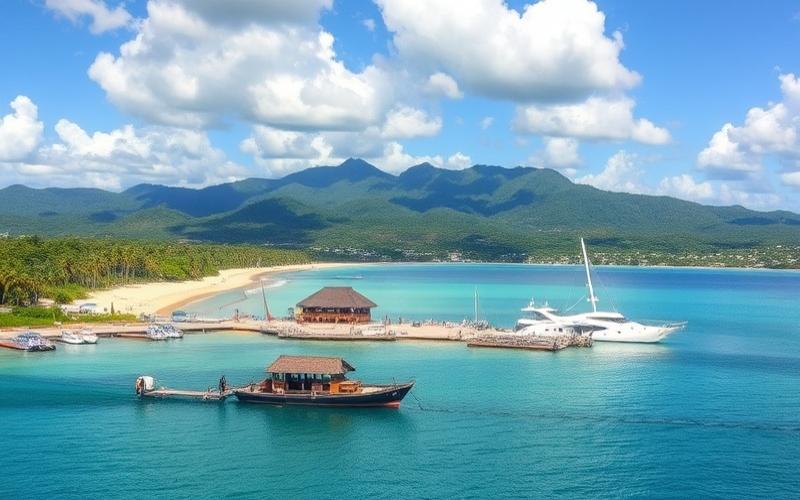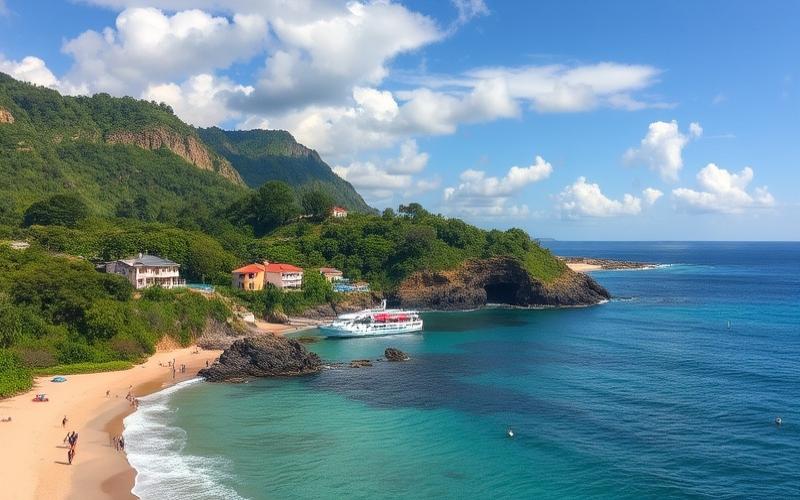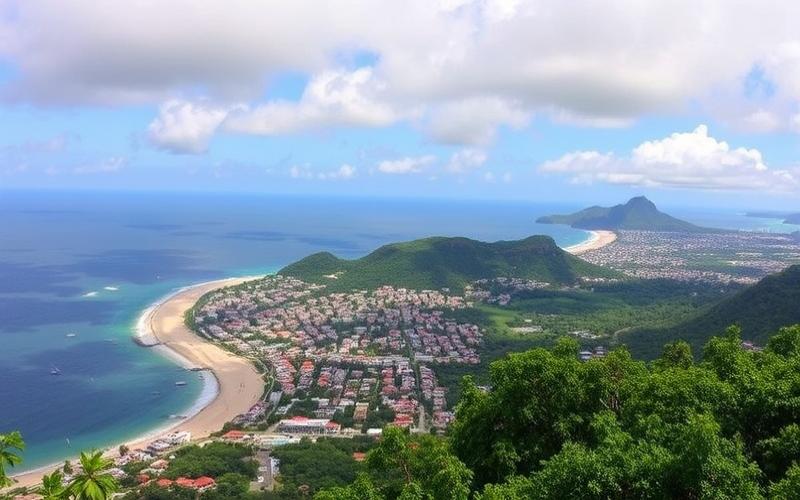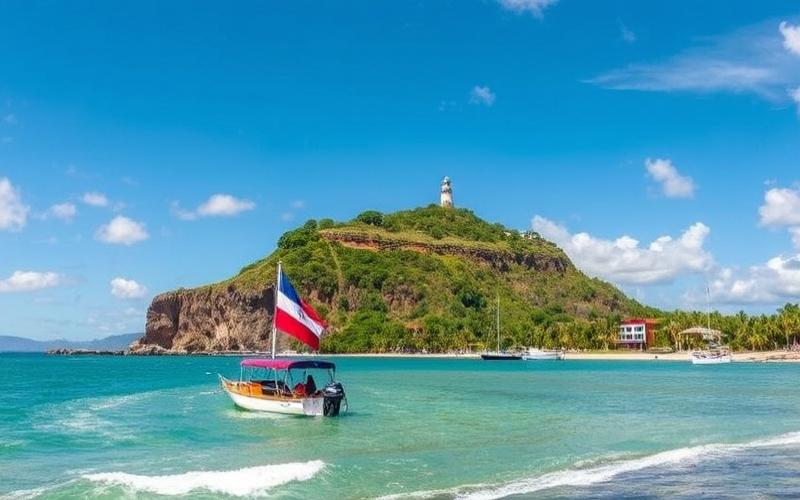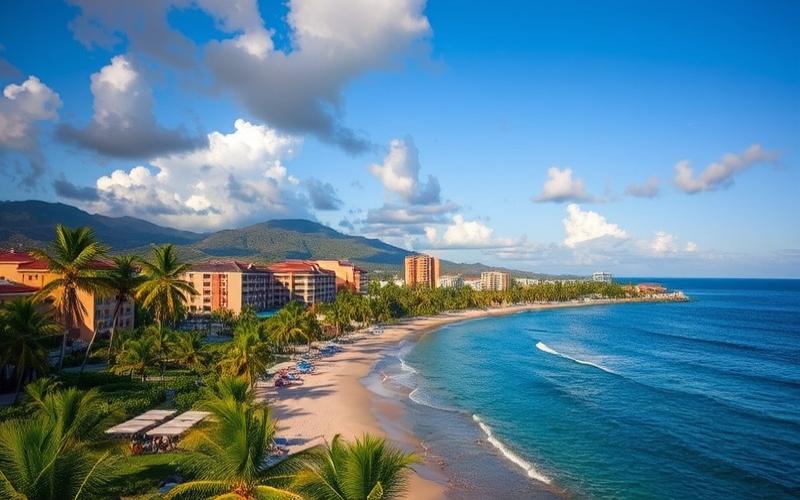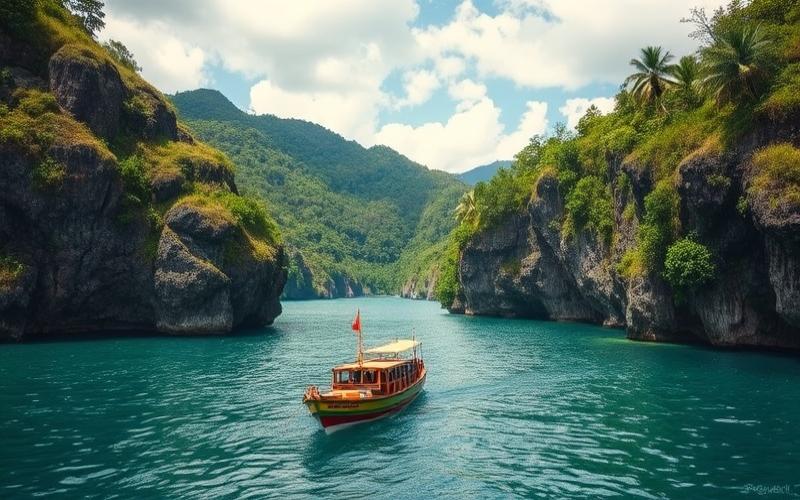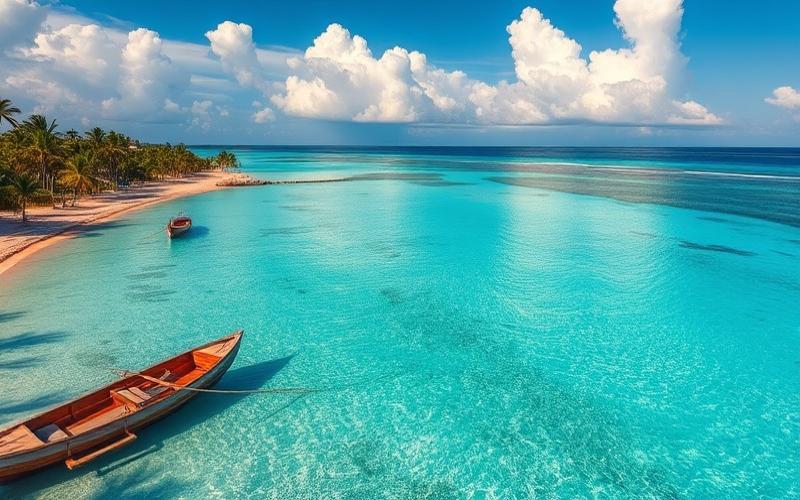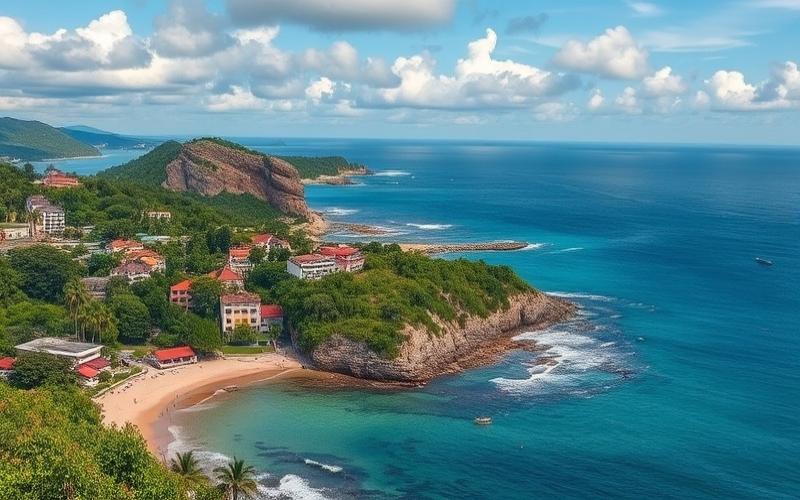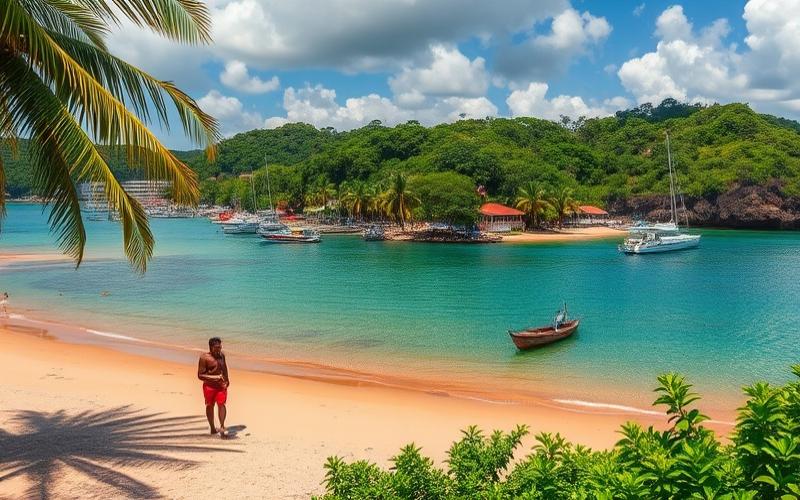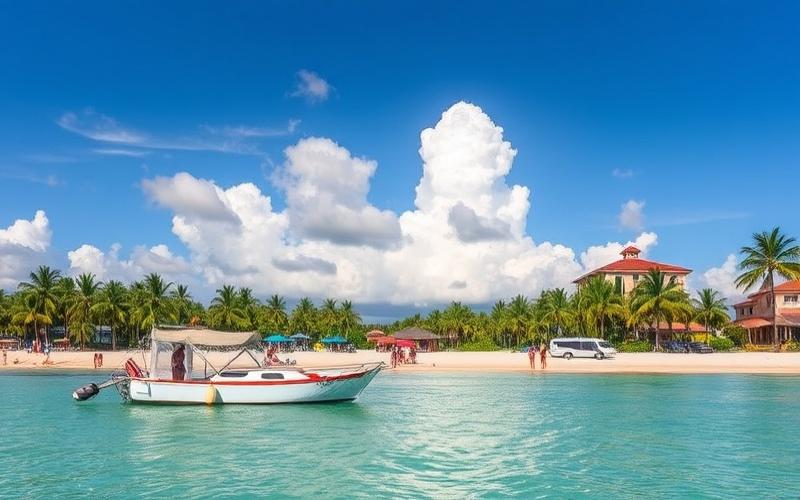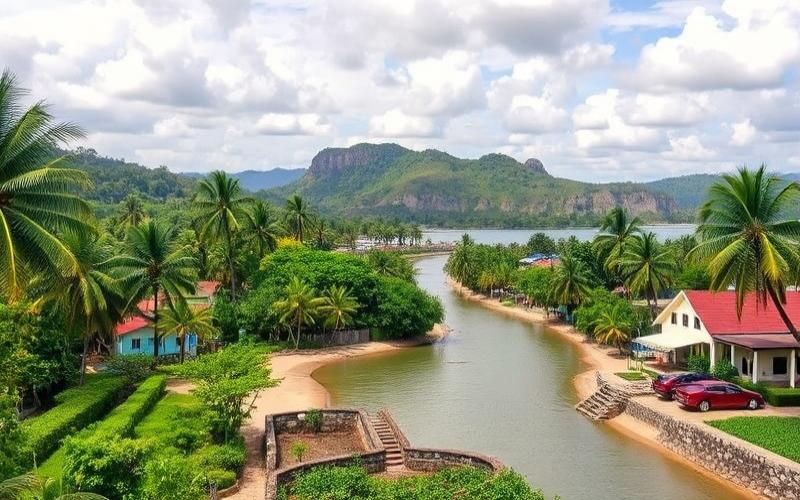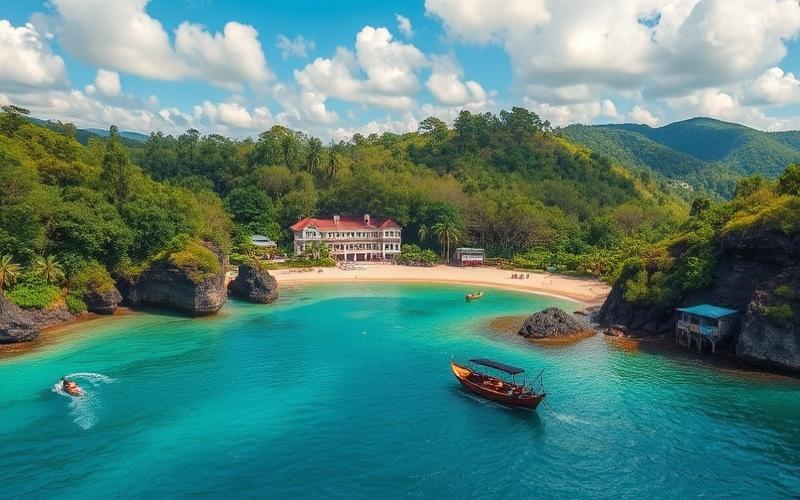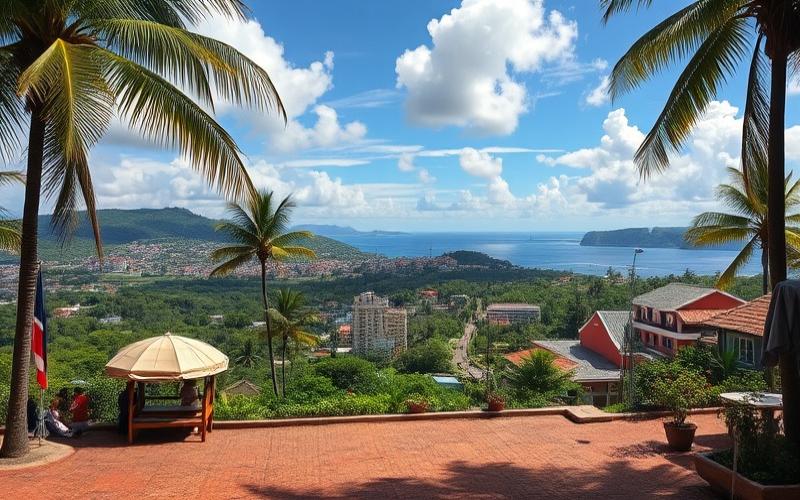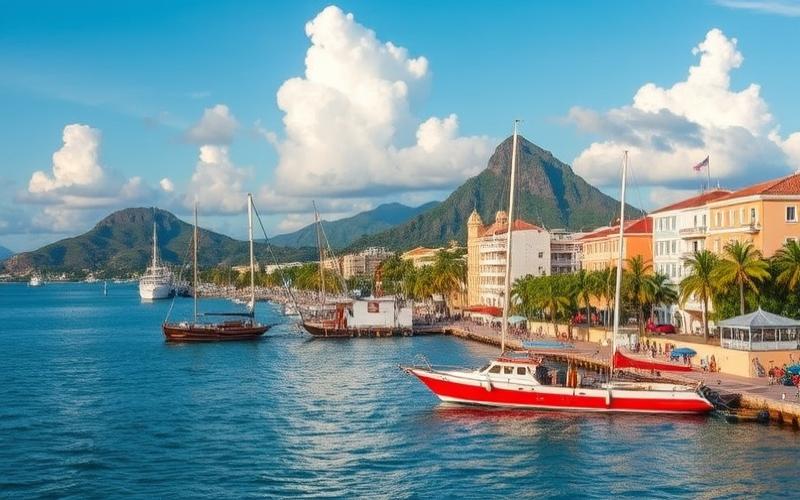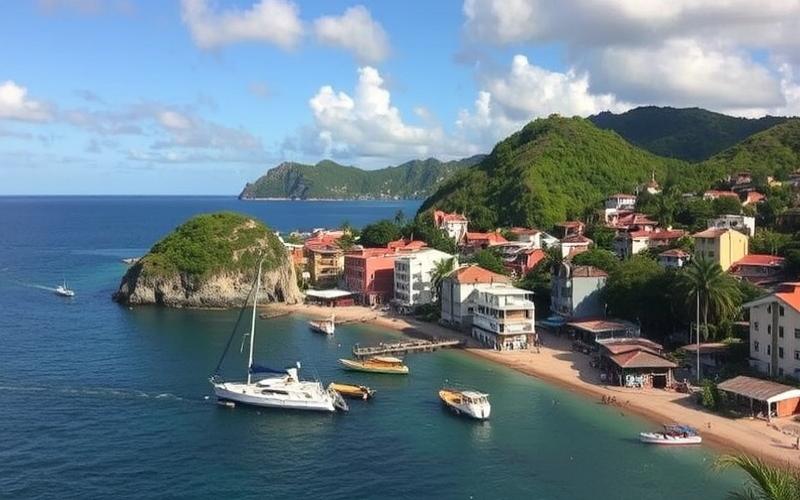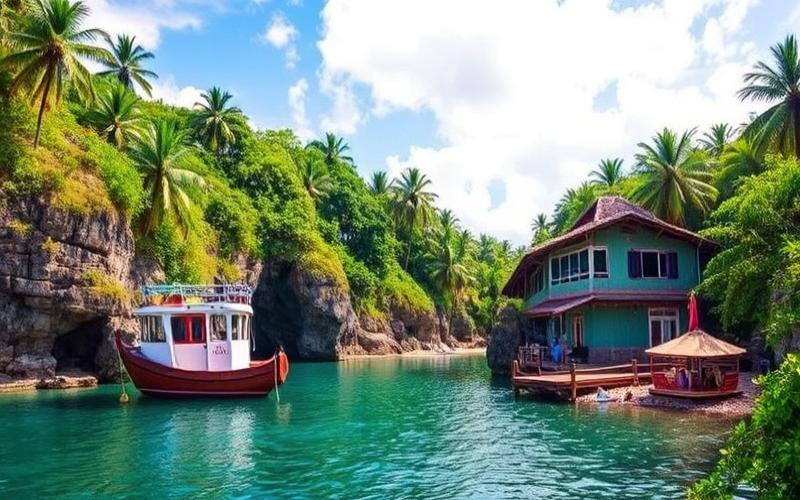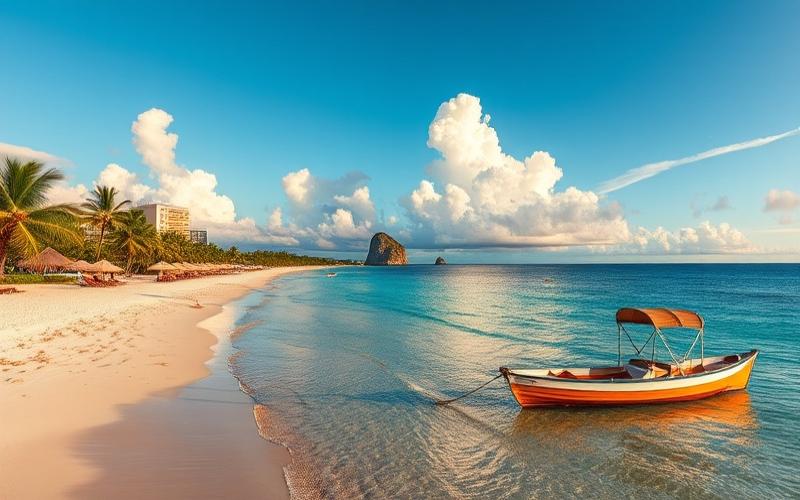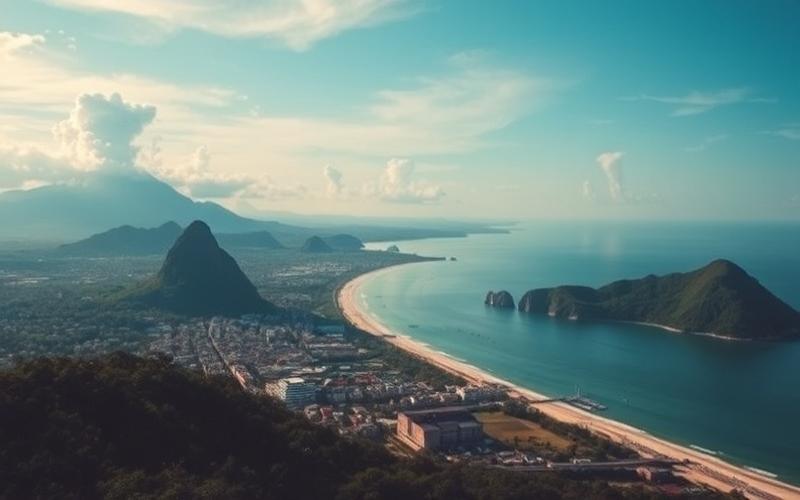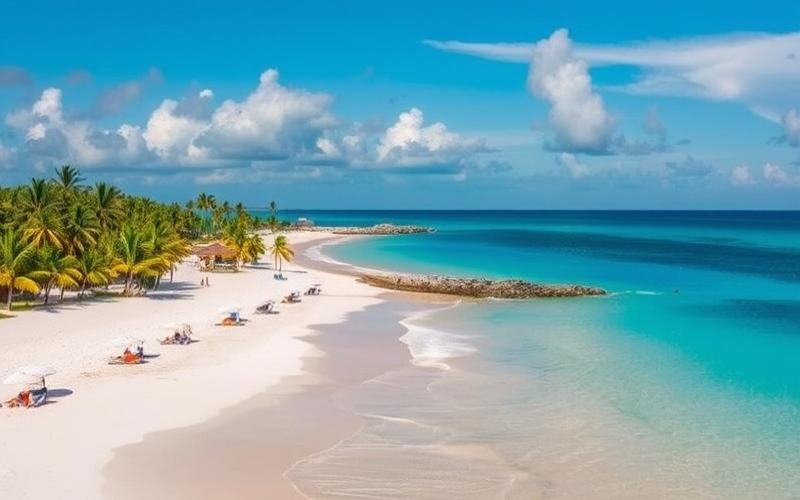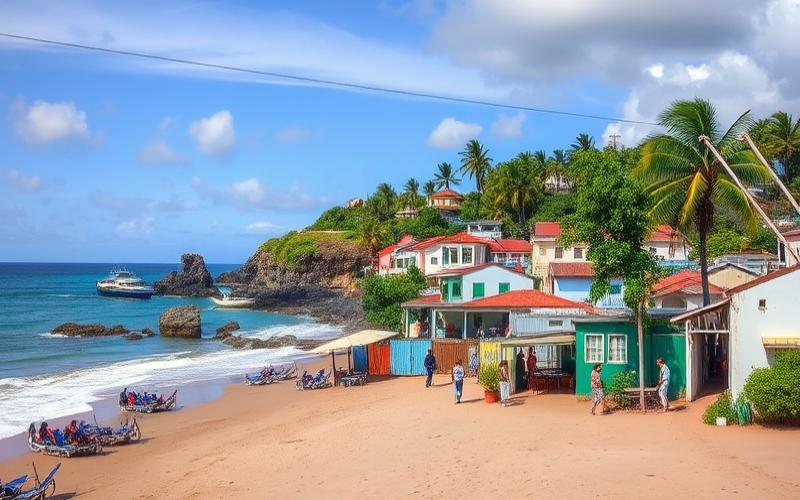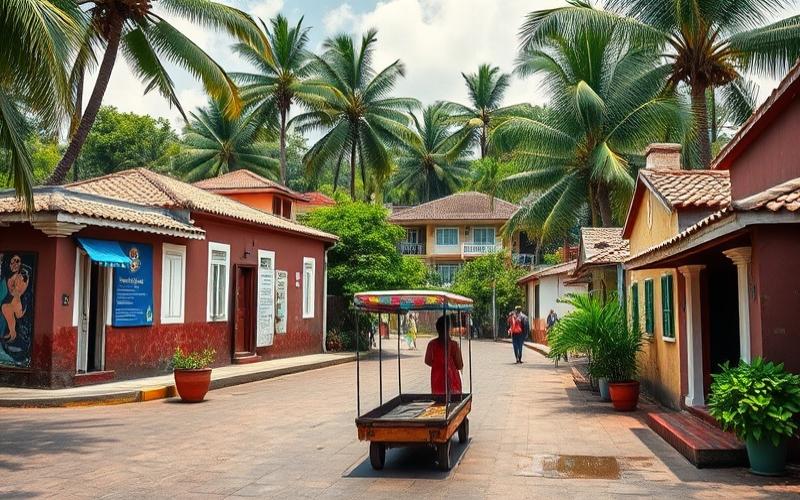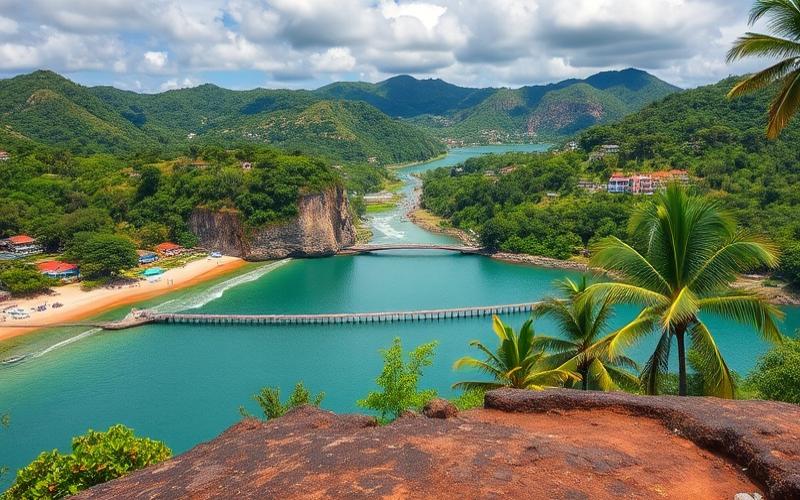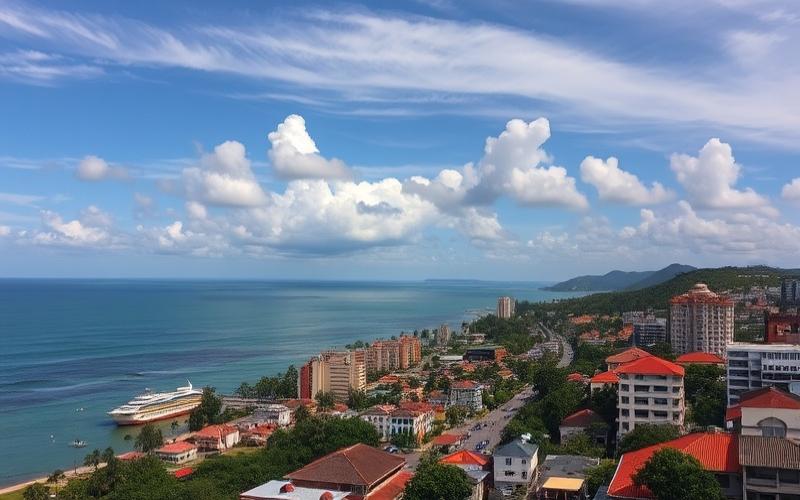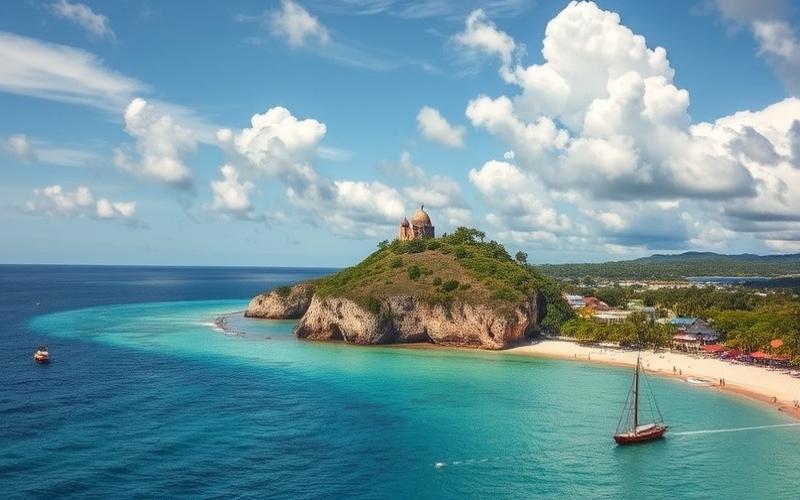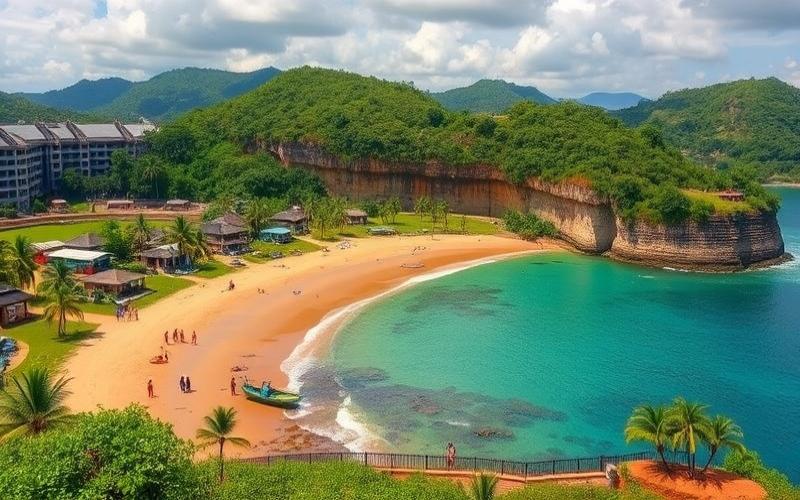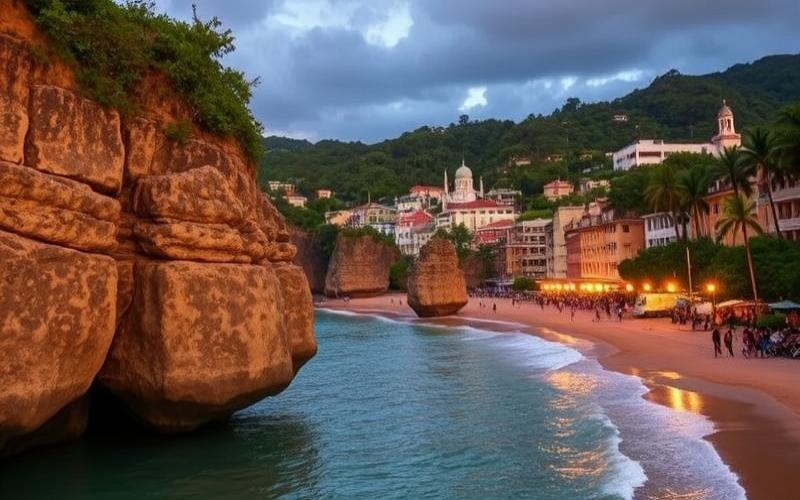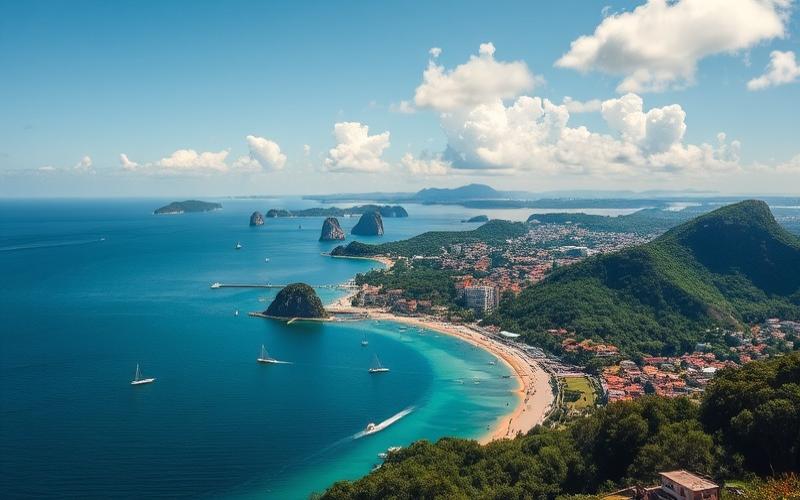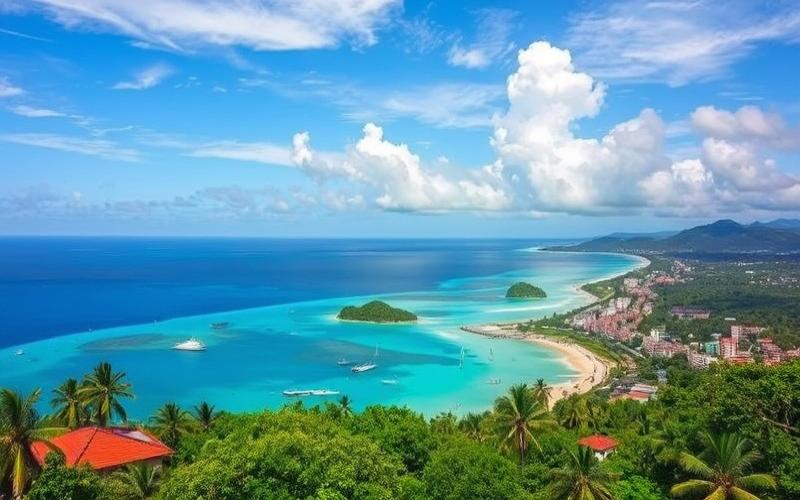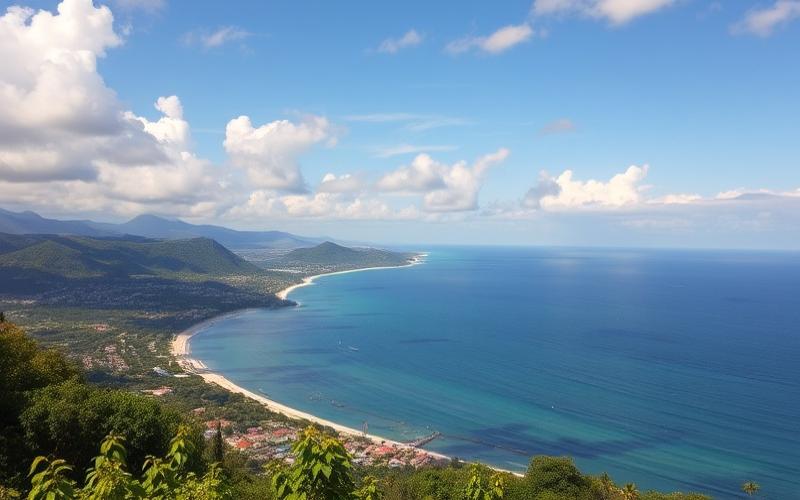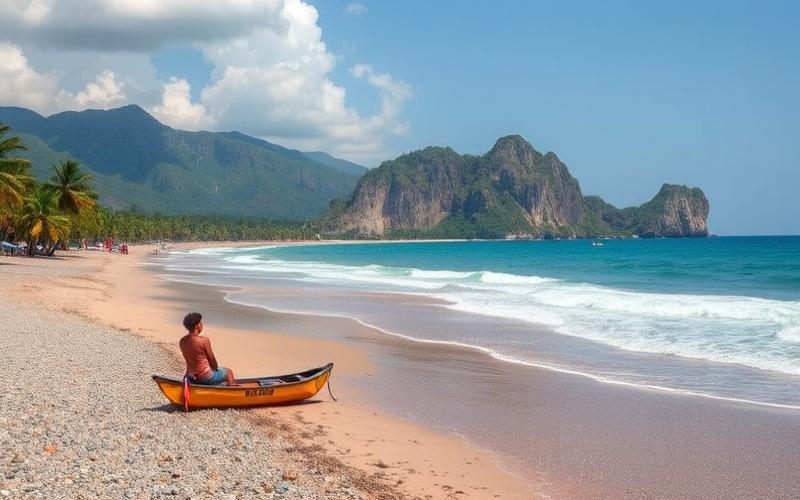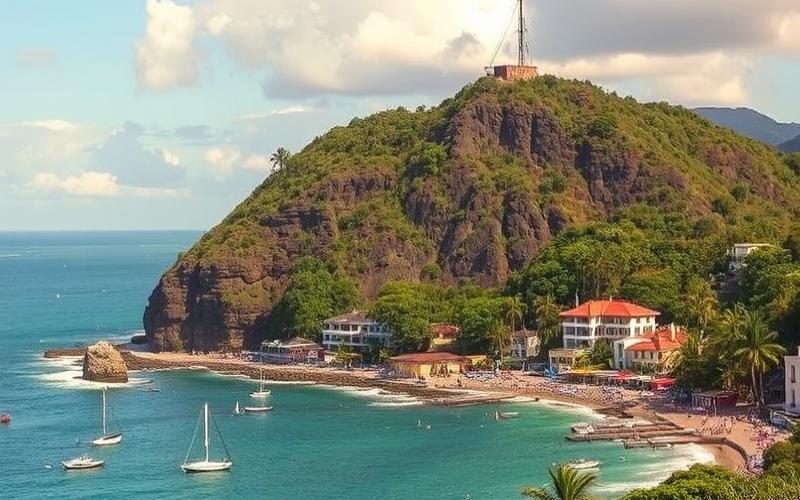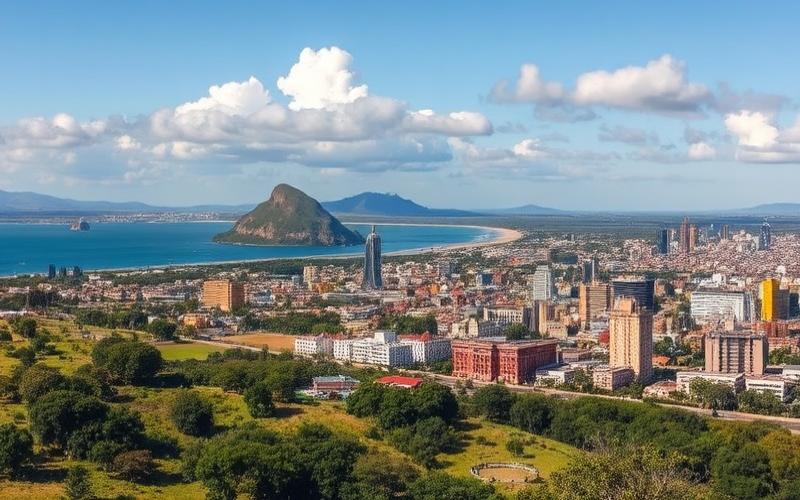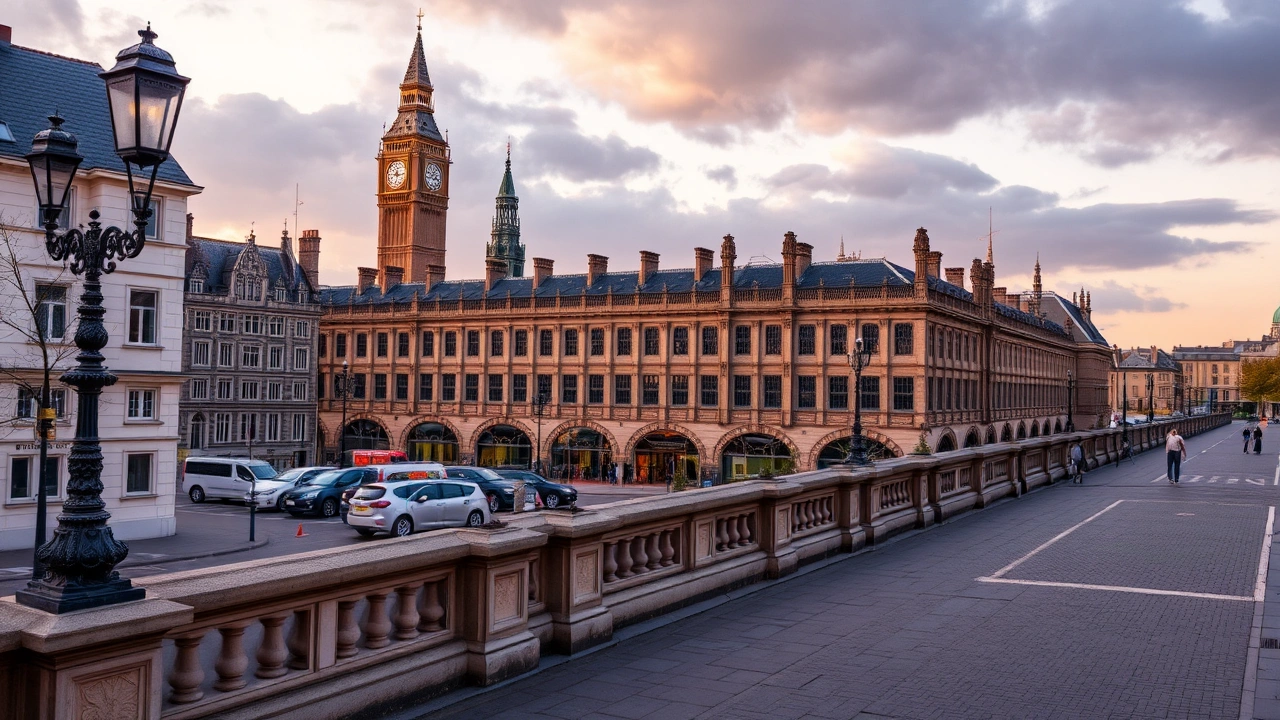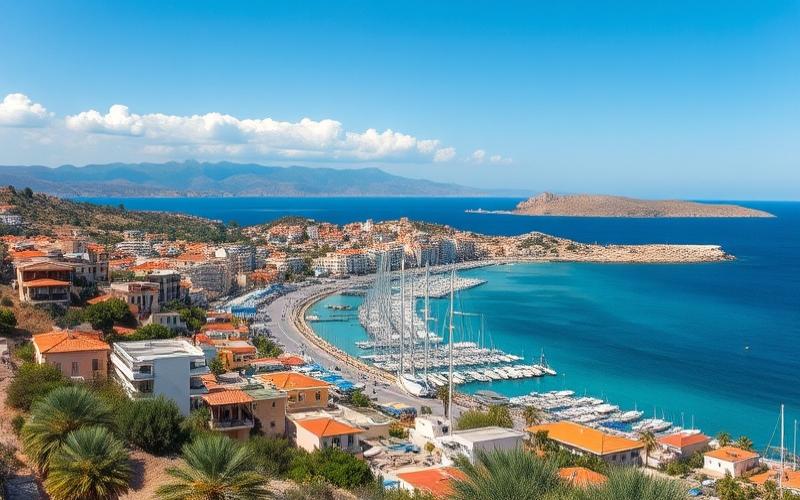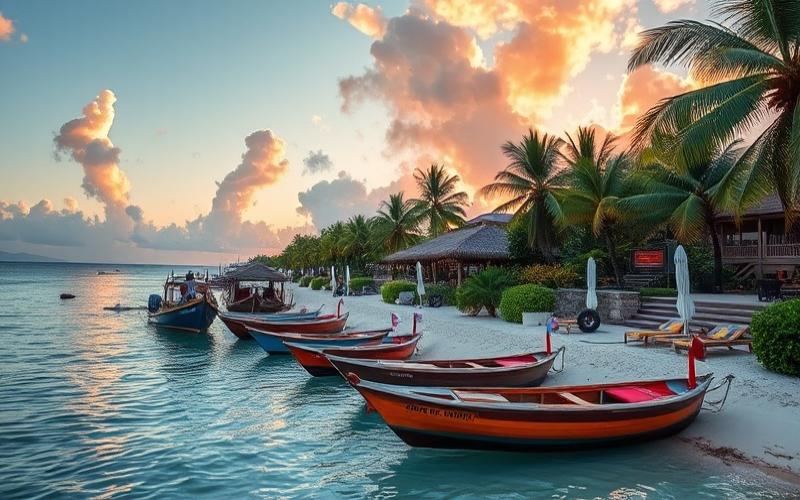
 Published on and written by Cyril Jarnias
Published on and written by Cyril Jarnias
The Dominican Republic, with its white sand beaches, sunny climate, and attractive cost of living, is becoming a top destination for seniors seeking a rewarding and affordable retirement.
Investing wisely in this tropical haven however requires precise knowledge of the best places to settle and optimize your assets.
This article explores the preferred areas for retired expatriates, from the vibrant communities of the Punta Cana region to the tranquil charms of Las Terrenas, including the opportunities in Santo Domingo, the capital.
Whether you’re drawn to a beachfront lifestyle or seeking cultural immersion in a cosmopolitan city, the Dominican Republic offers a multitude of choices.
Selection of the Best Cities for European Retirees in the Dominican Republic
Essential criteria for choosing a retirement city in the Dominican Republic:
- Cost of Living: Rent, food, and services are generally lower than in Europe. Retirees can live comfortably on a reasonable budget.
- Quality of Healthcare: Access to modern private clinics in major cities and some coastal towns, with multilingual doctors available.
- Safety: Monitored tourist and residential areas; low incident rates in neighborhoods popular with expatriates.
- Real Estate Opportunities: Dynamic market offering beachfront apartments, villas, or secure residences for all budgets.
| City | Cost of Living | Healthcare | Safety | Real Estate | Social Life | Expat Community |
|---|---|---|---|---|---|---|
| Punta Cana | Moderate | Excellent | Very Good | New Villas & Condos | Lively | Large |
| Santo Domingo | Variable | Excellent | Good | Urban & Historic Apartments | Cultural Events | Diverse |
| Las Terrenas | Moderate | Good | Good | Ocean View Homes, Lots | Cafes & Local Markets | European |
Advantages by Recommended City
- Punta Cana
- Tropical climate moderated by sea breezes
- Immediate proximity to the international airport
- Modern infrastructure (shopping malls, private hospitals)
- Very active French-speaking and European communities
- Testimonial from a Belgian expatriate:
“Here everything is designed for the comfort of foreigners. I play golf every week and have found genuine friendliness within the French-speaking club.”
- Santo Domingo
- Cultural capital of the country; museums, theaters, and diverse restaurants
- Renowned specialized hospitals (doctors trained in the US/Europe)
- Accessible urban life with developed public transport
- Secure residential neighborhoods like Piantini or Gazcue
- Testimonial from a Spanish retiree:
“Living here allows me to be close to artistic activities while enjoying the sunshine year-round.”
- Las Terrenas
- Relaxed atmosphere blended with a lively social life on the beach or in European cafes
- International supermarkets (French/Italian products), multicultural restaurants
- Easy access to healthcare through several local private clinics
- Tight-knit expat community; daily mutual support among European neighbors
- Anecdote from a French retiree:
“I found here that rare mix between preserved nature and modern services. Happy hours on Playa Bonita bring together all nationalities!”
Other Key Factors Considered by European Retirees
Accessibility to essential amenities (international banks, multilingual pharmacies)
Adapted Infrastructure
- Secure residences with private surveillance
- Social clubs reserved for seniors
- Adapted sports activities (golf, beach yoga)
Existing Expatriate Communities
- Dedicated Facebook groups facilitating rapid integration
- European associations organizing cultural outings
For many expatriates surveyed, the general feeling is this:
“The Dominican Republic offers that simple luxury so many retirees seek: human warmth, ideal climate, and controlled costs.”
Good to Know:
Punta Cana, with its pleasant climate and beaches, attracts European retirees due to its moderate cost of living and accessibility to healthcare services, although Las Terrenas is also popular for its peaceful atmosphere and strong expatriate presence. Santo Domingo, the dynamic capital, offers modern medical infrastructure and interesting real estate opportunities, making property investment much easier. These cities provide a secure ambiance and tight-knit expatriate communities, avoiding any feeling of isolation. Retirees in the Dominican Republic testify to the active social life and locally organized activities, with examples of multicultural evenings and leisure clubs for expatriates offering enriching daily experiences.
Investing in Real Estate for a Comfortable Retirement in the Dominican Republic
Economic and Tax Advantages of Real Estate Investment in the Dominican Republic
- No Restrictions for Foreigners: Non-residents can freely purchase real estate, with the same rights as Dominican citizens.
- Advantageous Taxation:
- Transfer fees moderate at purchase (approximately 3.5% of the price).
- Attorney fees generally between 1.5% and 2%.
- Possibility of property tax exemptions, depending on the property’s value or use (residential or rental investment).
- Laws Favorable to Expatriates:
- Simplified programs for obtaining permanent residence, notably through real estate investment or retiree status with regular monthly income.
Regions Popular Among Senior Expatriates
| Region | Infrastructure | Cost of Living | Medical Services |
|---|---|---|---|
| Punta Cana | Modern residences, beaches, international airport. | Moderate to high depending on standard; varied offerings. | Recognized private clinics; quick access to Santo Domingo for specialized care. |
| Santo Domingo | Dynamic capital: international hospitals, modern shopping centers. Secure residential neighborhoods (Piantini, Gazcue). | Moderate in some areas; urban but affordable outside downtown. | Best medical offering in the country: JCI-accredited hospitals and multilingual specialists. |
| Las Terrenas | Active French-speaking community; European shops; relaxed beachfront ambiance. | More affordable than Punta Cana; cost adapted for a comfortable retirement budget. | Good local medical coverage + proximity to Samana international clinic. |
Current Real Estate Market Trends
- Gradual price increase, driven by tourist and expatriate demand in coastal areas like Punta Cana and Las Terrenas.
- The supply remains attractive compared to other equivalent Caribbean destinations.
- Strong demand in the seasonal rental segment thanks to the national tourism boom.
Practical Tips for Prudent Investing
- Always perform a rigorous verification of property titles to avoid any future disputes.
- Engage a local experienced attorney, who masters Dominican law and can supervise each legal step until the final signing.
- Preferably opt for new properties offered by reputable developers to avoid structural surprises.
- Plan for cash payment or inquire about local financing – mortgages possible but with strict conditions and high rates (8–12%). Some sellers sometimes offer their own financing plan over a few years.
Concrete Examples & Inspiring Testimonials
“After selling our house in France, we invested in a beachfront apartment in Las Terrenas… The overall cost is lower than we imagined: low fees, reduced taxes… We fully enjoy the tropical climate while having access to necessary medical care without difficulty.”
“As Belgian retirees settled near Punta Cana for three years: our villa has gained more value than expected thanks to constant tourist development… We have also joined a very tight-knit international community.”
Dominican real estate thus not only allows for effective asset diversification but also guarantees an ideal setting to live your retirement comfortably under the tropical sun — while benefiting from a flexible and secure tax environment
Good to Know:
Investing in real estate in the Dominican Republic for a comfortable retirement presents numerous economic and tax advantages, including laws favoring expatriates such as exemption from certain taxes for lower income brackets. Popular regions like Punta Cana, Santo Domingo, and Las Terrenas attract for their modern infrastructure, affordable cost of living, and quality medical services. The local real estate market shows a moderate upward price trend, making investment wise in the long term. To secure a purchase, it is crucial to verify property titles and partner with a local attorney. For example, Jean and Marie, a retired couple, noted a significant improvement in their quality of life after purchasing a villa in Las Terrenas, enjoying the pleasant climate and an active community of senior expatriates.
Advantages of a Low Cost of Living for Senior Expatriates
Financial Advantages for Senior Expatriates in a Low Cost of Living Country
- Increased Purchasing Power: Settling in the Dominican Republic allows benefiting from a cost of living significantly lower than many European or North American countries. A fixed monthly pension thus offers superior purchasing power, enabling coverage of more needs and enjoyment of more leisure activities.
- Tax Exemptions: Retirees benefit from a total exemption of income tax on pensions received from abroad. They also enjoy exemption from the transfer tax when purchasing real estate and a 50% reduction in the annual property tax. Customs duties for importing personal goods are also eliminated, reducing the cost of settling in.
- Possibility to Live Comfortably: Thanks to these advantages and affordable local prices, it becomes possible to maintain, or even improve, one’s standard of living with a fixed income.
Practical Examples of Common Expenses in the Dominican Republic
| Common Expenses | Estimated Monthly Cost (USD) | Observations |
|---|---|---|
| Housing (1-bedroom apartment, city center) | 400 to 600 | Affordable properties, low condo fees |
| Groceries (for 2 people) | 200 to 300 | Abundant fresh produce, economical local market |
| Healthcare (private consultation) | 30 to 50 | Access to modern clinics in major cities |
| Leisure (restaurant for 2) | 25 to 40 | Regular outings accessible |
| Gym membership | 20 to 35 | Recent facilities available |
| Housekeeper (part-time) | 80 to 120 | Common and affordable service |
Psychological Benefits
- Reduced Financial Stress: The low cost of living and stability of expenses reduce anxiety related to budgeting and managing unforeseen events.
- Better Quality of Life: The ability to have resources for leisure, local travel, or wellness care contributes to a more fulfilled and balanced life.
Engagement in Cultural and Social Life
- Facilitated Participation in Activities: Seniors can more easily access cultural activities (concerts, exhibitions), social clubs, or excursions thanks to affordable rates.
- Rich Social Life: The budget freed up by lower common expenses can be reinvested in group activities, classes, or local events, fostering integration and the creation of social bonds.
Living in a country with a moderate cost of living, like the Dominican Republic, allows seniors to envision retirement not only as a period of rest but also as a time of fulfillment, discovery, and financial serenity.
Good to Know:
A low cost of living in the Dominican Republic allows senior expatriates to maximize their fixed pension, thereby increasing their purchasing power and daily comfort. For example, housing is affordable, with rents often half those in Western countries, and food expenses are reduced thanks to the availability of fresh produce at competitive prices. Medical care is also economically accessible while offering a good service level. Furthermore, the lesser financial stress linked to these savings contributes to a better quality of life, reducing monetary concerns. This financial security allows seniors to engage more in low-cost local social and cultural activities, such as dance classes or art workshops, offering them a rewarding and socially active retirement.
Disclaimer: The information provided on this website is for informational purposes only and does not constitute financial, legal, or professional advice. We encourage you to consult qualified experts before making any investment, real estate, or expatriation decisions. Although we strive to maintain up-to-date and accurate information, we do not guarantee the completeness, accuracy, or timeliness of the proposed content. As investment and expatriation involve risks, we disclaim any liability for potential losses or damages arising from the use of this site. Your use of this site confirms your acceptance of these terms and your understanding of the associated risks.


